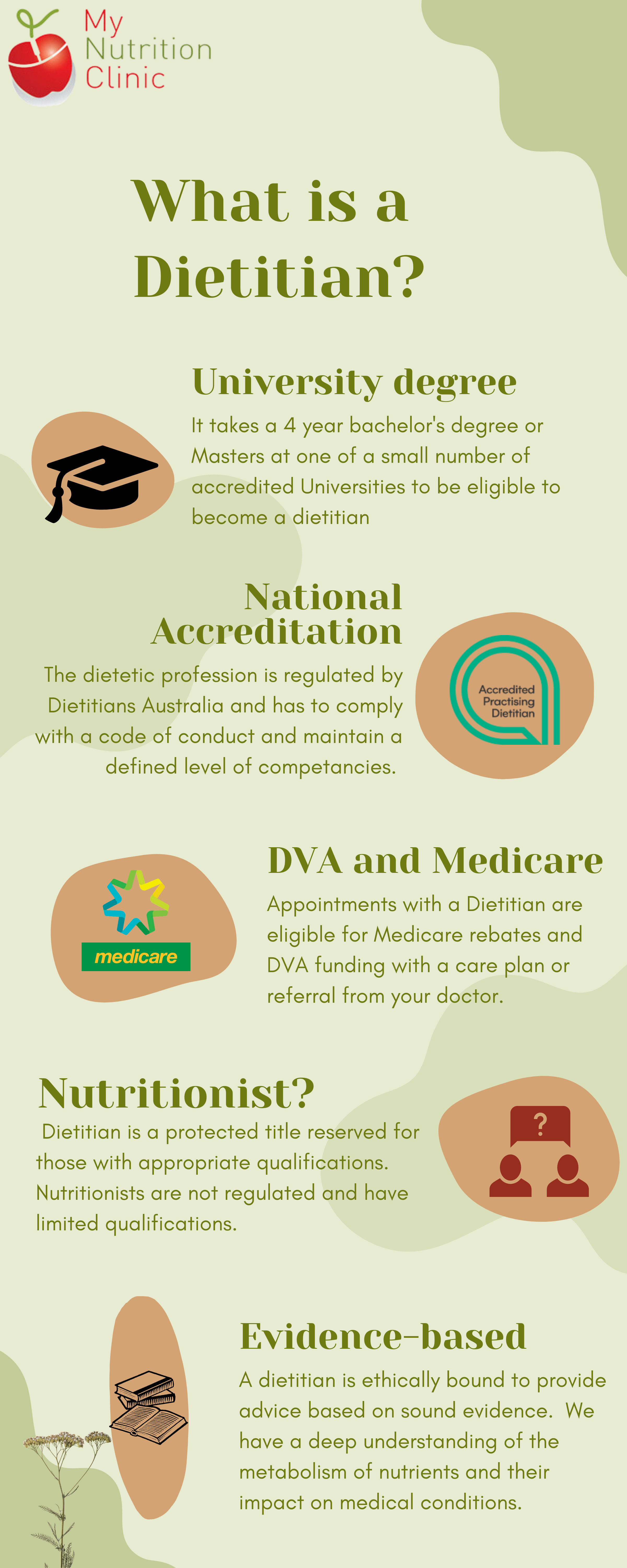All Categories
Featured
Table of Contents
-1
In the United States and lots of other nations, a dietitian is a board-certified food and nourishment specialist. They are extremely enlightened in the field of nutrition and dietetics the scientific research of food, nutrition, and their influence on human health. With extensive training, dietitians acquire the experience to give evidence-based medical nutrition therapy and nutritional therapy customized to meet a person's needs.
-1To make these credentials dietitians-to-be have to initially gain a bachelor's degree or comparable credits from a recognized program at a college or college. Typically, this requires an undergraduate scientific research level, including training courses in biology, microbiology, natural and inorganic chemistry, biochemistry, anatomy, and physiology, as well as more specialized nourishment coursework.
Plant-based Dietitian
-1This enables them to assess intense demands, focusing on dangerous conditions. Inpatient and outpatient dietitians additionally provide nourishment education to individuals with specialized needs, such as those freshly out of surgery, in cancer cells therapy, or detected with persistent diseases like diabetes mellitus or kidney condition. In the outpatient setting, they provide extra in-depth nutritional counseling functioning towards a nutrition-oriented goal.
-1They can likewise promote for public laws with a concentrate on nutrition, food, and wellness issues. Research dietitians commonly operate in research hospitals, companies, or universities. They operate within a study team headed by a key detective and execute nutrition-focused treatments. When dietitians have actually gained their qualifications and are operating in the field, they can take place to specialize in a particular subcategory, such as pediatric medicines or sporting activities dietetics.
-1They might furthermore teach in an academic or study institution or blog about nutrition-related topics. Others might function as health and wellness and nutrition specialists in media or as public audio speakers. Dietitians are certified to take care of nutrition therapy throughout a span of severe and chronic problems. The kind of conditions they treat depends most on the setting of their practice.
Accredited Sports Dietitian
-1In lots of states, such as Alaska, Florida, Illinois, Maryland, Massachusetts, and Pennsylvania, RDs and CNSs are approved the same state license, generally called an Accredited Dietitian Nutritional Expert (LDN) certificate. In states that do not manage the use of this term, any person with a passion in diet or nutrition might call themselves a nutritional expert.
-1However, due to the fact that uncredentialed nutritionists generally do not have the knowledge and training for clinical nutrition therapy and nourishment counseling, following their suggestions could be thought about harmful (). Prior to getting in touch with a nutritionist, you may intend to check whether your state controls who may utilize this title. In the U.S. states that do not manage the term, no levels or credentials are called for to be a nutritional expert.

-1
In states that do mandate licensure, the CNS or RD credential might required. Those with CNS qualifications are health and wellness experts like registered nurses or medical professionals with innovative wellness levels who have actually looked for extra coursework, finished monitored technique hours, and passed an examination looked after by the Board for Qualification of Nutrition Specialists.
-1While several of these methods may have robust clinical backing, others may not. Providing nourishment suggestions without the correct knowledge and training can be unsafe, especially when counseling those with health conditions. If you are considering getting in touch with a nutritionist, you may want to ask if they are a CNS or have state licensure or qualification, or an additional credential.
Vegan Dietitian ( Stirling)
-1Several states specifically control this term. Additionally, nutritional experts might pursue an innovative CNS certification.
-1It can be testing to help people make genuine, long lasting adjustments in their lives. However, when you obtain an effective case, the payoff can be immensely gratifying. If it's a job option that you desire to seek, there are two major profession options available to you. Both dietitians and nutritional experts supply an array of nutrition-based solutions to clients.
-1They must have completed some degree of education in their field. They are likewise required to have actually completed up to a year of monitored job, functioning within a directed program at a medical care center, providing organization, or neighborhood body. Dietitians have far greater expectations put on their abilities and level of professionalism.
-1This suggests that there is no body that oversees their credentials and no particularly rigid standards that nutritionists requirement to comply with in order to be able to exercise. Dietitians, on the other hand, are signed up with nationally acknowledged bodies, such as the Dietitians Association of Australia. They should follow the National Competency Standards for Dietitians.
Diabetes Nutritionist ( Stirling 6060)

-1
You can practice as a nutritional expert without the same degree of accreditation as a dietitian. Nutritional expert training courses can vary in length and high quality, with some as brief as six weeks and covering far less content than a dietetics program. Depending upon your education and learning carrier, you can get a significant amount of understanding via examining an easy nourishment course; however it's important to explore the training course web content before beginning.
-1This can consist of going to market workshops or reviewing sector magazines. Nutritional experts, on the other hand, generally gain their credentials in order to supplement other credentials and give much better suggestions to their customers. Nutritionists can gain work in a wide variety of areas, consisting of public health and wellness guidance, suggestions for people, and working with private organisations.
-1Nutritional experts can function with showing off organisations, fitness centers, colleges and suggest media outlets on basic terms and correct usage of terms. Dietitians can work in many of the exact same duties as nutritional experts.
Vegan Dietitian ( Stirling 6060)
-1Dietitians frequently work with even more clinically delicate customers. Since of the high degree of understanding required to supply solutions to these people, only approved dietitians are allowed to offer care.
-1In Australia there is a distinction between a dietitian and other dietary health service providers including nutritional experts. All dietitians are nutritional experts, but nutritionists without a dietetics credentials can't call themselves a dietitian.
-1Dietitians with the Accredited Practising Dietitian (APD) credential commit to recurring training and education throughout their occupations. As a profession, nutritionists are not regulated in Australia under NASRHP or licensed under a solitary regulative body.
Low Fodmap Dietitian
-1If you have a chronic health and wellness problem and a treatment plan from your general practitioner, you might be able to claim a Medicare discount when you see an APD. Find out more concerning assistance with costs when seeing a dietitian. The major function of people operating in the profession of dietetics is symbolized in this statement: The occupation of dietetics contributes to the promotion of health and wellness and the avoidance and therapy of disease by optimising the nutrition of populations, communities and people.
Table of Contents
Latest Posts
Dietwise.net.au - About Us
General Faq ( Armadale)
Freebies – Kwinana 6167
More
Latest Posts
Dietwise.net.au - About Us
General Faq ( Armadale)
Freebies – Kwinana 6167